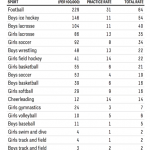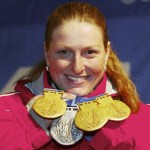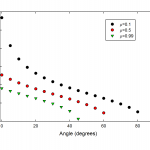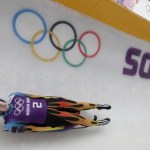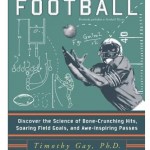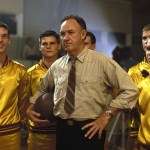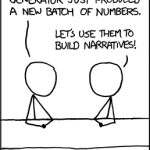Sports
The AV Club had a Q&A last week asking "What would be your entrance music?" As a music fan and a sports junkie this is, of course, a nearly irresistable question, though a lot of other things got in the way before I could get around to typing up an answer.
I've always kind of thought that Superchunk's "Hyper Enough" would be fantastic entrance music for somebody:
Of course, that somebody wouldn't really be me, as I'm not especially hyper. If I were going to be running out onto a stadium floor for some sporting purpose, I would need something more in line with my actual speed. Maybe a…
Donald Sterling appears to be a hard core racist, and this, appropriately, got him in trouble. Recently, Atlanta Hawks owner Bruce Levenson released an email he had written some time back, which discusses race related issues vis-a-vis the Hawks, and announced that he was bowing out of ownership from the team because of this racist email.
The media reaction to this has been fairly uniform, and includes an aspect that I think should be examined more closely. Bruce Levenson, and his statement, have been placed in the same category as Donald Sterling and his statements. But they should not be.…
Over at Five Thirty Eight, Walt Hickey has a piece about cheerleading as a sport and injury rates, which is both a nice look at the way to use stats to measure the real danger level of an activity, and the sort of small details that can be teased out. The piece includes a table of injury rates for a wide variety of sports, seen above as the "featured image" and reproduced below. I don't really have anything much to say about cheerleading, but one thing did jump out at me from the table, leading to the question in the post title.
this table show concussion rates in competition and in practice…
One of the weird quirks of Union college, where I teach, is that the hockey teams compete in the NCAA's Division I, something that doesn't usually happen for a school with only 2200 students. That might seem like a ridiculously terrible idea, but last night, it worked surprisingly well: Union beat perennial hockey power Minnesota for the NCAA National Championship. It was an amazing game
I'm not going to pretend like I'm a huge fan-- Kate and I watched on tv, the only hockey I've watched all season-- and I'm certainly not going to use first-person pronouns to talk about it (I really hate that…
I'm running errands today, so here's a quick post picking up a question from last week's Olympic physics hangout: What sport involves the least physics?
One of the kids in the classes we were video chatting with asked that, and I really like the question, though it was a struggle to answer. It's one of those questions that will ultimately be like an excessively-zoomed-in data graph-- whatever the answer, everything starts with a pretty high baseline of physics content, just because there's physics in everything.
For the Winter Olympics, my original suggestion was ski jumping, thinking it was…
Over at Backreaction, Bee takes up the eternal question of scientists vs. journalists in exactly the manner you would expect from a physicist: she makes a graph. Several of them, in fact.
It's generally a good analysis of the situation, namely that scientists and journalists disagree about how to maximize information transfer within the constraints of readership. That's a very real problem, and one I struggle with in writing the blog and books, as well. Lots of people will read content-free piffle, but if the goal is to convey good, solid science to as many people as possible, well, that's a…
I spent a while on Friday morning talking about the physics of the Olympics with a couple of science classes in Tennessee and Lawrence Norris from the National Society of Black Physicists, organized by Adam "@2footgiraffe" Taylor. This was done via a Google hangout, so the video is recorded on YouTube:
The recording seems to have mostly remained on my video feed, which is a little unfortunate. Lawrence didn't have a camera, though, so he's a disembodied voice. I liked the first question-- "What Olympic event involves the least physics?"-- though it's a tricky one to answer.
Anyway, it was a…
Remember the Fall Olympics in Vancouver? That was the year that skaters ... not the racing ones but the dancing ones ... were falling all the time as if they had some kind of special extra slippery ice on the skating rink. Well, this year, at Sochi II, we are witnessing the Fall Olympics mainly on the snow slopes and half pipe, where lousy snow conditions, caused by warm conditions with some rain, have messed everything up.
But there is an interesting twist this year. According to a piece in the New York Times, women are being affected more than men:
...most of the injuries have been…
In the previous post about luge, I mentioned that there was one thing that came up when Rhett and I were talking about this, namely why there are differences in times between racers. The toy physics model I set up last time suggests that the difference between riders is only a matter of aerodynamics-- two riders with the same mass and cross-sectional area ought to achieve the same speed. So why do they all get different times?
Well, if the sleds and other gear were all identical and locked into tracks, then mass and aerodynamics would be the entire story. But they're not-- the rules allow for…
In the Uncertain Dots hangout the other day, Rhett and I went off on a tangent about the physics of the Olympics, specifically the luge. If you're not familiar with this, it's basically psycho sledding: people riding tiny little sleds down a curved track at 80mph.
The "featured image" above shows Erin Hamlin of the US women's luge team during a training run (AP photo from here); she went on to win a bronze medal, the US's first in individual luge, so congratulations to her. The photo gives you an idea of what's involved: tiny sled, icy track, curved walls.
(In the Winter Olympics context,…
Unless you've been marooned on a desert island for the last couple of weeks-- or, you know, foreign-- you're probably at least dimly aware that the Super Bowl is this evening. This is the pinnacle of the football season, and also the cue for lots of people to take to social media proclaiming their contempt for the Super Bowl, NFL football, or just sports in general. This can occasionally be sort of amusing, as with Kyle Whelliston's "Last Man" game, but usually, it's just kind of tedious. The AV Club has pretty much the only necessary response, namely that Nobody Cares That You Don't Care…
One of the frequent topics on this blog is, unsurprisingly, cancer quackery. Be it the Gerson therapy and its propensity for encouraging patients to take hundreds of supplements and to shoot copious amounts of coffee where it really doesn't belong (where the sun don't shine), the Gonzalez protocol, homeopathy, naturopathy, or various other nonsensical and dangerous cancer therapies with no scientific basis, I take them on because, as a cancer surgeon, I can't stand seeing cancer patients abused this way. If they're curable, I hate seeing them seduced into throwing away their chance for cure,…
While I was away for the weekend, intending to mostly ignore the Internet, Steve Maier tweeted:
#FantasyFootball ?
What if #FantasyPhysics existed--who would be your picks?
This, of course, ended up sucking up a huge amount of mental energy for the rest of the weekend, because it's such perfect blog fodder. If I'd had a laptop with me, I might've ended up staying up late writing it up, but instead, I'm skipping the second half of a horror-show game between my Giants and the hated Cowboys to write it on Sunday night...
So. Fantasy physics. For those not up on their pop culture, this is a…
I've been revising a chapter on collaboration in science for the book-in-progress, making an analogy to team sports. And it occurred to me as I was trying to find a way to procrastinate, that while science is a highly collaborative endeavor, most of the popular stories that get told about science are not. There's no Hoosiers of science out there.
Now, admittedly, the sample of great pop-culture stories about science period is pretty small. But what does exist mostly concerns individual struggles-- the lone genius who can revolutionize science by just thinking about it in isolation, but who…
After Thursday's post about sports and statistics, a friend from my Williams days, Dave Ryan, raised an objection on Facebook:
There's an unstated assumption (I think) in your analysis: that there is some intrinsic and UNALTERABLE statistical probability of getting a hit inherent in every hitter. If that is the case, then yes -- a hitter whose mean is .274 that hits .330 in the first half should, reasonably, be expected to regress towards the "true" outcome of .274 in the second half; and if the hitter winds up batting .330, it's a statistical outlier. But that ONLY applies if the underlying…
One of the chapters of the book-in-progress, as mentioned previously, takes the widespread use of statistics in sports as a starting point, noting that a lot of the techniques stat geeks use in sports are similar to those scientists use to share and evaluate data. The claim is that anyone who can have a halfway sensible argument about the relative merits of on-base-percentage and slugging percentage has the mental tools they need to understand some basic scientific data analysis.
I'm generally happy with the argument (if not the text-- it's still an early draft, and first drafts always suck…
One of the great frustrations of my intellectual life, such as it is, is the problem of the disappearing quote. This is a function of having acquired a broad liberal education (in the sense of "liberal arts college" not the sense of "person to the left of Rush Limbaugh") in a somewhat haphazard manner. My knowledge of physics is reasonably systematic, but for just about everything else, I've taken a bunch of classes, and read quite a bit of stuff, but never done all that much to keep the knowledge thus acquired organized. Which frequently leaves me in the position of knowing I read something…
Regular readers probably know that I'm into more than just science, skepticism, and promoting science-based medicine (SBM). (If they're regular readers of my other, not-so-super-secret other project, they might also realize that they've seen this post before elsewhere. I had to stay out late for a work-related event and decided to tart it up and recycle. So sue me.) I'm also into science fiction (hence the very name of this blog, not to mention the pseudonym I use), computers, and baseball, not to mention politics (at least more than average). That's why our recent election, coming as it did…
Every four years, I am inspired by the Olympic portrayal of the best of human strength and spirit that brings together nations unlike any other event. Thanks to Canadian sprinter Jenna Martin, I found this astounding example of an Olympic Fall. It is a race emblematic of the value of falls, and failures in our life. It is a must see!
In which I get a little ranty about basketball.
-----------
Over at Slate, Matt Yglesias has a column about why everybody ignores the Spurs.:
America—at least in its own imagination—stands for certain things. For the idea that hard work and sound judgment bring success, and that success deserves celebration. That winners should be celebrated as long as they play by the rules. That teamwork, leadership, loyalty, and excellence all count for something. And that’s why the San Antonio Spurs, currently riding a stupendous run of 19 straight victories, are America’s favorite professional basketball…

